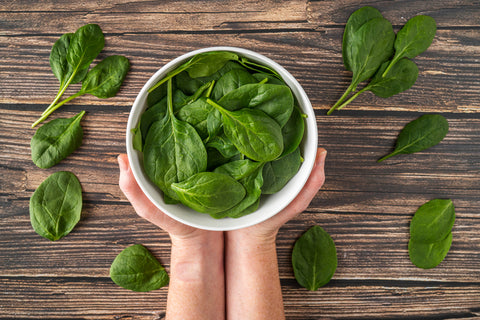Protein plays a crucial role in various bodily functions, from building and repairing tissues to supporting immune function and maintaining hormone balance. It is often considered the building block of life, crucial for our overall health and well-being. However, did you know that many women lack sufficient protein in their diets?
Today, we’ll explore the importance of protein for women’s health and delve into some simple daily food habits that can help meet the body's protein requirements.
Why is Protein Important for Women?

Muscle Health:
Protein is essential for maintaining muscle mass, strength, and function, especially as women age. Adequate protein intake can help prevent muscle loss and support overall physical strength and mobility.
Hormone Regulation:
Proteins are involved in the production and regulation of hormones, especially during various life stages such as pregnancy, breastfeeding, and menopause which play a key role in women's reproductive health, menstrual cycle regulation, and overall well-being.

Hair, Skin, and Nail Health:
Proteins such as collagen play a vital role in the body and are essential for healthy muscle, bone, hair, skin, and nails. Including protein-rich foods in your diet can help promote radiant skin, strong hair, and resilient nails.
Weight Management:
Protein is known for its satiating effect, helping to curb cravings and promote feelings of fullness. Incorporating protein-rich foods into meals and snacks can aid in weight management by reducing overall calorie intake.
Immune Function:
Many immune system components, including antibodies, are made up of proteins. Consuming an adequate amount of protein supports a healthy immune system, helping the body fend off infections and illnesses.
Why Women Often Lack Protein:
Despite its importance, many women fall short in meeting their daily protein needs. Several factors contribute to this deficiency:
Dietary Preferences: Women, particularly those following vegetarian or vegan diets, may struggle to consume enough protein-rich foods.
Misinformation: There's a misconception that protein is primarily for bodybuilders or athletes, leading some women to prioritise other nutrients over protein in their diets.
Busy Lifestyles: Juggling work, family, and other responsibilities can make it challenging to prepare balanced meals, leading to reliance on convenience foods that may lack adequate protein.
Fear of Weight Gain: Some women avoid protein-rich foods due to concerns about calories or a misconception that protein contributes to weight gain.
Limited Access: Socioeconomic factors can impact access to protein-rich foods, with some women facing barriers such as cost or availability.
Daily Food Habits for Meeting Protein Needs:

Start Your Day with Protein:
Kickstart your morning with a protein-rich breakfast. Include foods like eggs, Greek yogurt, cottage cheese, or protein smoothies made with fruits and protein powder to provide your body with a good dose of protein to fuel your day.
Incorporate Lean Protein Sources:
Choose lean sources of protein such as poultry, fish, tofu, legumes, and lentils. These options are lower in saturated fats and can provide ample protein without excess calories.
Snack Smartly:
Opt for protein-rich snacks to keep hunger at bay between meals. Some healthy snack options include nuts, seeds, hummus with veggies, Greek yogurt with fruit, or protein bars.
Load Up on Plant-Based Proteins:
Plant-based protein sources like beans, lentils, quinoa, nuts, seeds, and tofu are not only rich in protein but also packed with fiber, vitamins, and minerals. Incorporating these foods into your meals ensures a well-rounded and nutritious diet.

Plan Balanced Meals:
Aim to include a source of protein in each meal. Whether it's grilled chicken breast in a salad, chickpeas in a curry, or a salmon fillet with roasted vegetables, incorporating protein into your meals ensures you're meeting your body's needs.
Hydrate Wisely:
Remember that hydration is also important for protein metabolism. Drink an adequate amount of water throughout the day to support efficient protein digestion and absorption.

Listen to Your Body:
Pay attention to your body's hunger and fullness cues. Consuming protein-rich foods in appropriate portions helps maintain energy levels and supports overall health.
Protein is a fundamental nutrient essential for women's health and well-being, yet many women fall short in meeting their daily needs. By incorporating lean protein sources into meals, snacking smartly, and making mindful food choices, women can support muscle health, hormone balance, immune function, and overall well-being. Small dietary changes can make a big difference in achieving optimal health and vitality. Remember investing in your health today paves the way for a brighter, protein-powered tomor





